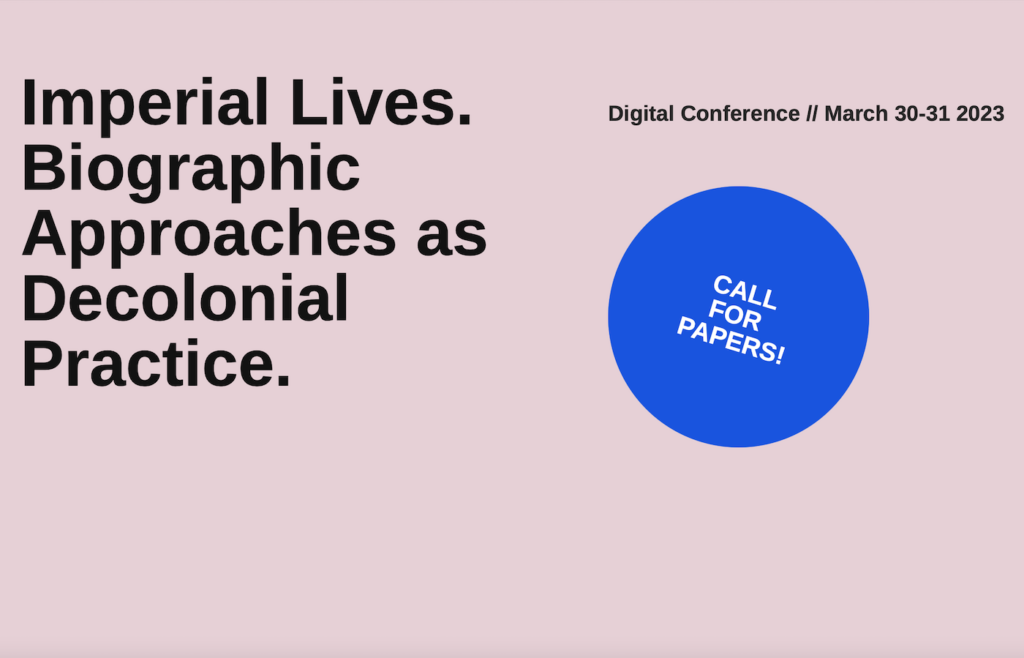Imperial Lives
Deadline: 12 February 2023

Courtesy of Imperial Lives
After years of struggle, deflection, and hesitation, ethnographic museums are increasingly accepting the need for decolonization. Often, this is framed in terms of diversity and empowerment and with a special focus on creator communities and their diaspora. We agree: the victims of imperial violence and their descendants need to be at the centre of any fruitful decolonization process.
However, this leaves a momentous gap: what about the creators of the museum, the collectors who often violently amassed the collections, as well as those who are implicated in their legacy today? Whose acts of perpetration, violence, transgression, betrayal, superiority, exploitation, and misunderstanding lie at the foundation of the museum? When it comes to the actors in question and their agency, what prevails is often absence or a retreat into abstraction, both in academia and the museum.
The Imperial Lives conference wants to widen this perspective and offer a complementary approach: it aims at exploring ways of overcoming this colonial aphasia by focussing on the concrete, often messy biographies behind the institution ethnographic museum. We propose that the encounter with the personified past of empire – the biographies of imperial collectors – creates a space of unsettlement in which the personal implication of all members of a post-imperial democratic society can be explored and collective memory transformed.
Ethnographic museums, as one of the most visible sites of imperial continuity, offer an exemplary field for the exploration of imperial perpetration and implication that goes beyond the bounds of anthropology – especially when it comes to the interaction with broader audiences.
This is why the conference will focus on both research and narration, inviting transdisciplinary perspectives from history, cultural, and literary studies as well as artistic, journalistic and activist practices.
We call for contributions addressing issues of biographic knowledge generation and representation, including questions such as:
Conference language: English
There will be a recording of all papers, keynotes, and panels.
Scholars from the following fields are invited:
ethnography, anthropology, literary studies, historical science, cultural studies, museology, art history, arts (e.g. fine arts, film, literature etc.), provenance research, journalism.
Please hand in your abstract of max. 500 words (in English, + short bio) until 2023/02/12: Here.